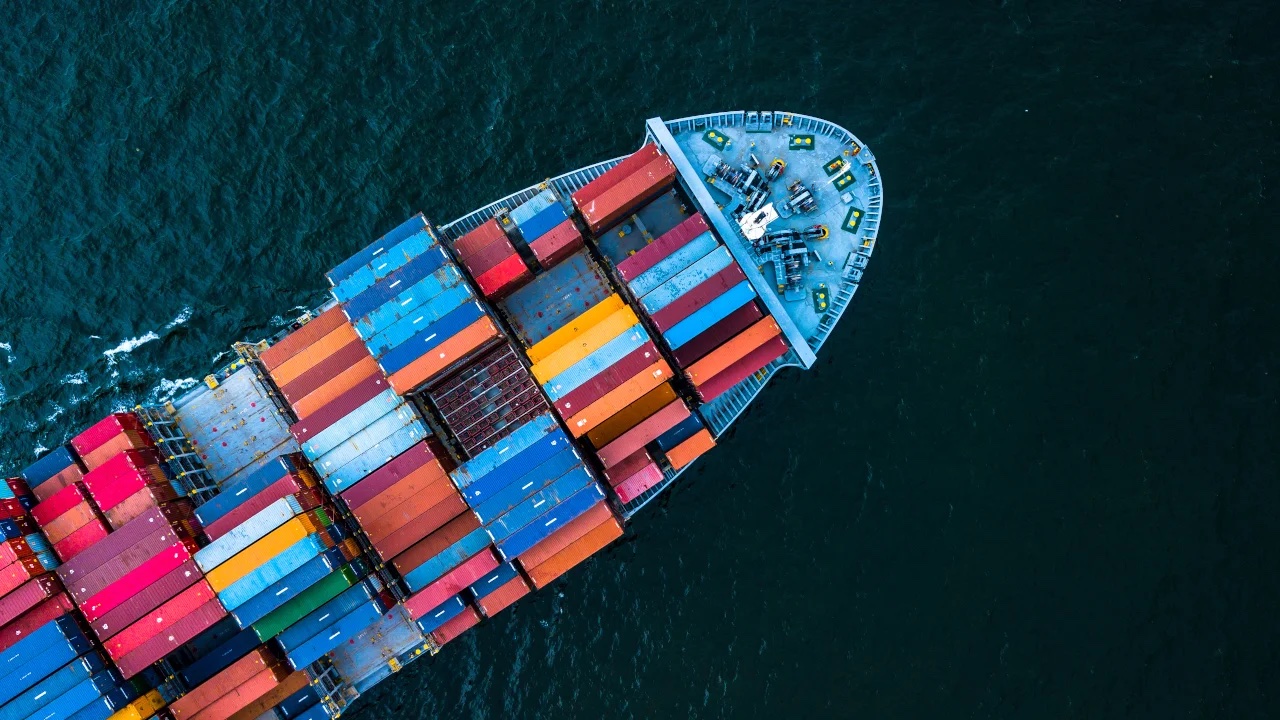By Allan Lilia is the Deputy SecretaryMinistry of Infrastructure Development Solomon Islands.
Shipping is a major contributor to our single, biggest threat: the climate crisis. The global shipping industry is responsible for around 3% of global climate pollution, puffing out over 1 billion tonnes of greenhouse gases every year.
Living across hundreds of small islands, our people of the Solomon Islands depend on shipping for every aspect of their lives, from the best or only means to travel to delivering food and other vital supplies.
But shipping is also a major contributor to our single, biggest threat: the climate crisis. The global shipping industry is responsible for around 3% of global climate pollution, puffing out over 1 billion tonnes of greenhouse gases every year.
For us in the Pacific, this in reality means rising sea-levels, unpredictable storms, devastating floods, and eroding coastlines. 14.3 million people in the region were directly affected by climate-related disasters in 2021 alone.
In 2020, a category 5 tropical cyclone ‘Harold’ caused widespread destruction. An estimated 100,000 to 150,000 people in the Solomon Islands were affected, houses were destroyed and damaged. Dozens of families were forced out of their homes on Guadalcanal. On the ferry MV Taimareho 27 passengers were knocked overboard by the waves and lost.
These events are not of our own making, and yet we suffer the most. The 36 Small Island Developing States (SIDS) together contribute less than 1% to global climate pollution, which is less than a third of what shipping does to our planet.
This is why together with our key Pacific partners, the Solomon Islands has been championing greater climate ambition on shipping across international fora for years.
And now, in 2023, we are glad to see other governments finally preparing to act. The UN’s shipping regulator, the International Maritime Organization (IMO), has agreed to strengthen its targets for reducing pollution from ships at its crucial climate summit in July.
The 80th session of the Marine Environment Protection Committee (MEPC 80) will decide whether and how fast shipping can deliver its zero-emission transition.
While a majority of its 175 member states seems on board for the adoption of a zero-emission target by 2050, worsening natural disasters around the world keep reminding us that we need more urgency in the short term.
This is why together with the Marshall Islands we are proposing that the IMO strengthens its emission reduction targets for 2030 and 2040 sufficiently to ensure that the 1.5°C limit set by the Paris Agreement remains within reach.
But any increase in the IMO’s level of ambition will also require a hard-hitting package of measures that can actually achieve it.
Following the last round of negotiations in December, the IMO’s Secretary General Kitack Lim noted a consensus among countries on adopting a levy on emissions from ships.
And here’s where shipping can be a solution to the climate crisis, not just a problem: a price on shipping emissions could drive decarbonisation of the sector while also generating tens of billions of dollars in funding each year to ensure all nations can transition together, especially the most vulnerable.
The Solomon Islands and Marshall Islands are proposing a levy of initially $100 per tonne of greenhouse gas emitted by ships globally, and for this to be put in place by 2025. Our proposal is by far the most ambitious measure on the table, with the World Bank estimating it could generate between $60-80 billion per year.
Other proposals are less ambitious, but would still raise significant sums. Japan’s proposal, for example, is valued at about $40 billion.
The key discussion here—and where the voices of other climate-vulnerable states are needed loud and clear—is on how much of this revenue will be committed to the priority needs of the most disproportionately impacted states.
The Solomon Islands and Marshall Islands are proposing a dedicated pot of money to be allocated for climate-related projects both inside and outside the maritime sector, especially in fellow SIDS and least developed countries (LDCs).
In a crucial endorsement, the World Bank echoed this revenue-distribution proposal earlier in February, proposing that SIDS and LDCs are among the primary recipients of shipping levy revenues and that this funding is used for a broader climate adaptation and mitigation.
But to make this possible and to reap the economic benefits shipping’s decarbonisation can offer, we need more countries on board.
Some states are still hesitant, focusing on the cost of action rather than the enormous cost of inaction. But delaying always costs more. University College London estimates that shipping (and ultimately all of us who are its customers) will have to pay $100 billion every year for climate-related disruptions from now on, if we does not act.
I invite governments, especially those facing similar existential threats from climate change, to come to the IMO at the next earliest opportunity: the working group talks on March 20-24 in London, and speak in favour of strong targets and an equitable distribution of shipping levy revenues.
Together, we can not only drive climate action and protect our future, but also transform the global climate finance framework and ensure that climate finance reaches those who need it the most.





